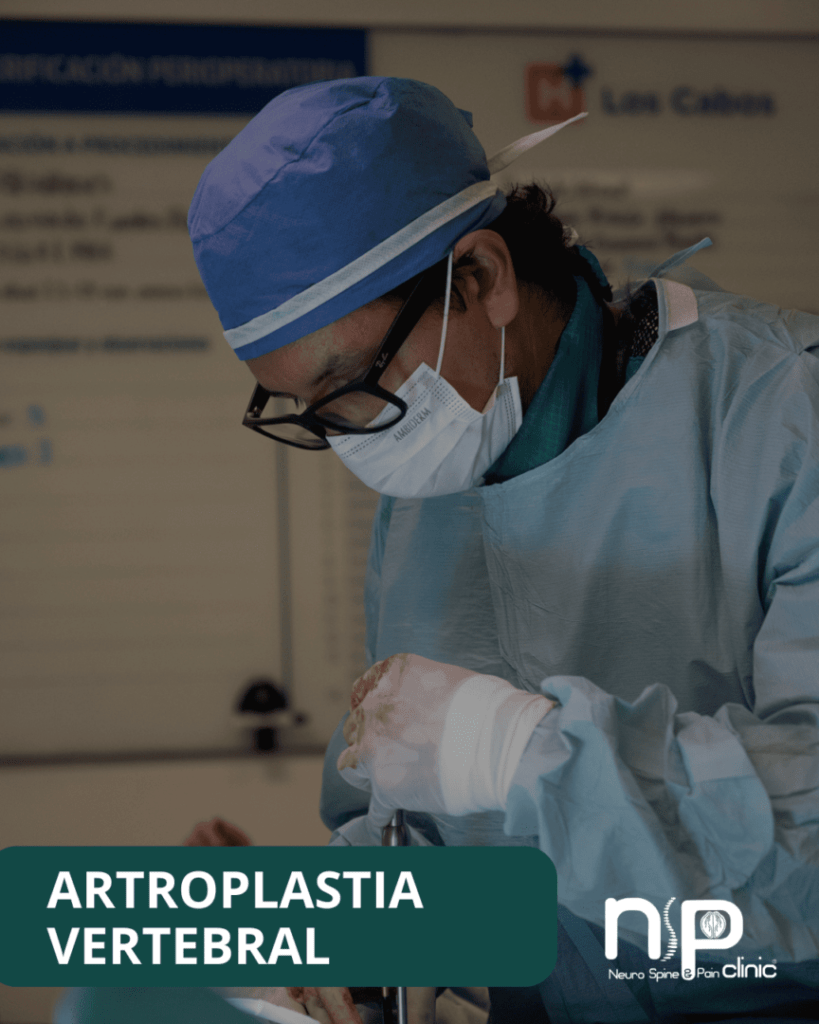En NSP Clinic, la nutrición es una parte integral de nuestro enfoque holístico para la salud y el bienestar de nuestros pacientes. Reconocemos que una alimentación adecuada desempeña un papel crucial en la salud del cerebro, la columna vertebral y el manejo del dolor. Por lo tanto, ofrecemos servicios de asesoramiento nutricional personalizados para ayudar a nuestros pacientes a optimizar su alimentación y mejorar su calidad de vida.
Nuestros expertos en nutrición trabajan en estrecha colaboración con nuestros pacientes para desarrollar planes de alimentación adaptados a sus necesidades individuales y objetivos de salud. Estos planes pueden incluir recomendaciones específicas sobre nutrientes clave para el cerebro y la salud de la columna vertebral, así como pautas para una alimentación equilibrada que apoye la reducción del dolor y la inflamación.
La nutrición juega un papel fundamental en nuestra salud general, pero ¿Alguna vez has considerado cómo afecta específicamente la salud de tu cerebro y tu columna vertebral? En NSP Clinic, estamos comprometidos a brindar un enfoque integral para el bienestar de nuestros pacientes, y la nutrición es una parte crucial de ese enfoque. En este blog, exploraremos la importancia de una nutrición adecuada para la salud del cerebro y la columna vertebral, y cómo NSP Clinic puede ayudarte a optimizar tu alimentación para mejorar tu calidad de vida.
Nutrición para el Cerebro:
El cerebro es un órgano increíblemente complejo que requiere una variedad de nutrientes para funcionar de manera óptima. Desde ácidos grasos omega-3 hasta antioxidantes y vitaminas del complejo B, una dieta equilibrada puede tener un impacto significativo en la salud cerebral. En NSP Clinic, nuestros expertos en nutrición trabajan con los pacientes para desarrollar planes de alimentación que incluyan alimentos ricos en estos nutrientes clave. Esto puede ayudar a mejorar la cognición, la concentración y la función cerebral en general.
Nutrición para la Columna Vertebral:
La columna vertebral es el eje central de nuestro cuerpo y juega un papel crucial en nuestra movilidad y bienestar físico. La nutrición desempeña un papel importante en la salud de la columna vertebral, especialmente en lo que respecta a la salud de los discos intervertebrales y la prevención de enfermedades como la osteoporosis. En NSP Clinic, nuestros programas de nutrición estándiseñados para apoyar la salud de la columna vertebral, proporcionando a los pacientes los nutrientes necesarios para mantener la fortaleza y la flexibilidad de la columna vertebral. Aunque su enfoque principal es la promoción de la salud a través de la alimentación adecuada, también pueden trabajar en la prevención y el tratamiento de una variedad de padecimientos.
Algunos de los padecimientos que un nutriólogo puede tratar
Alimentos para una Salud Óptima:
Alentamos a nuestros pacientes a incluir una variedad de alimentos saludables en su dieta diaria. Esto incluye frutas y verduras coloridas, grasas saludables como las que se encuentran en el aguacate y los frutos secos, y fuentes de proteínas magras como el pescado y el pollo. También recomendamos limitar el consumo de alimentos procesados y ricos en azúcares añadidos, que pueden tener efectos negativos en la salud cerebral y de la columna vertebral.
Personalización y Apoyo:
Cada paciente es único, y en NSP Clinic entendemos que una talla única no sirve para todos cuando se trata de nutrición. Es por eso, por lo que ofrecemos programas de nutrición personalizados que tienen en cuenta las necesidades individuales de cada paciente, así como sus objetivos de salud y estilo de vida. Nuestros expertos en nutrición trabajan en estrecha colaboración con los pacientes para desarrollar planes de alimentación que sean realistas, sostenibles y efectivos.
Anemia:
La anemia es una condición médica caracterizada por una disminución en el número de glóbulos rojos o en los niveles de hemoglobina en la sangre. La hemoglobina es una proteína presente en los glóbulos rojos que transporta oxígeno desde los pulmones a todas las células del cuerpo. Cuando los niveles de hemoglobina son bajos, puede resultar en una variedad de síntomas, como fatiga, debilidad, palidez, dificultad para respirar y mareos.
Diabetes:
Es una enfermedad crónica que afecta la forma en que el cuerpo procesa la glucosa en sangre. La glucosa es la principal fuente de energía para el cuerpo y proviene de los alimentos que consumimos. La diabetes se produce cuando el cuerpo no produce suficiente insulina (una hormona que ayuda a regular los niveles de glucosa en sangre) o no utiliza la insulina de manera efectiva.
Síndrome de ovario poliquístico (SOP:)
Es un trastorno endocrino común que afecta a mujeres en edad reproductiva. Se caracteriza por desequilibrios hormonales que pueden causar una variedad de síntomas, como períodos menstruales irregulares, infertilidad, aumento de peso, acné y crecimiento excesivo de vello facial o corporal. La nutrición juega un papel importante en el manejo del SOP, ya que ciertos alimentos y patrones dietéticos pueden influir en los síntomas y la salud hormonal de las mujeres con este trastorno.
El síndrome del intestino irritable (SII):
También conocido como colon irritable, es un trastorno gastrointestinal crónico que afecta el funcionamiento normal del intestino grueso. Se caracteriza por síntomas como dolor abdominal, distensión abdominal, cambios en los hábitos intestinales (diarrea,estreñimiento o ambos), gases y malestar general. La nutrición desempeña un papel importante en el manejo del colon irritable, ya que ciertos alimentos y patrones dietéticos pueden desencadenar o aliviar los síntomas.
Hipertensión arterial:
La hipertensión arterial, comúnmente conocida como presión arterial alta, es una condición médica en la cual la fuerza ejercida por la sangre contra las paredes de las arterias es demasiado alta de manera crónica. Esta condición puede aumentar el riesgo de enfermedades cardíacas, accidentes cerebrovasculares y otros problemas de salud si no se controla adecuadamente.
Los trastornos alimenticios:
Son afecciones graves que afectan la salud física, emocional y mental de las personas. A menudo se caracterizan por comportamientos alimentarios anormales, preocupaciones obsesivas por el peso y la imagen corporal, y pueden tener consecuencias devastadoras si no se tratan adecuadamente. La nutrición juega un papel crucial en el tratamiento de los trastornos alimenticios, ya que la restauración de un patrón alimentario saludable es esencial para la recuperación.
Las enfermedades gastrointestinales:
Son afecciones que afectan el tracto gastrointestinal, que incluye el esófago, el estómago, el intestino delgado, el intestino grueso y el recto. Estas enfermedades pueden variar en gravedad y síntomas, y pueden ser agudas o crónicas. La nutrición juega un papel fundamental en el manejo y tratamiento de muchas enfermedades gastrointestinales.
La nutrición antes de una cirugía:
También conocida como nutrición preoperatoria, es crucial para preparar el cuerpo y promover una recuperación óptima después de la intervención quirúrgica. Aquí hay algunos aspectos importantes sobre la nutrición preoperatoria:
1. Optimización del estado nutricional: Antes de someterse a una cirugía, es importante que el paciente esté en un estado nutricional óptimo. Esto significa consumir una dieta equilibrada que proporcione todos los nutrientes necesarios para mantener la salud y fortalecer el sistema inmunológico. Si se detectan deficiencias nutricionales, es posible que se requiera suplementación bajo la supervisión de un profesional de la salud.
2. Manejo del peso: Para algunos pacientes, especialmente aquellos con obesidad, es posible que se recomiende perder peso antes de la cirugía para reducir el riesgo de complicaciones durante y después del procedimiento. Sin embargo, la pérdida de peso rápida o drástica puede no ser segura ni efectiva, por lo que es importante buscar orientación de un profesional de la salud para establecer metas de pérdida de peso seguras y alcanzables.
3. Control de enfermedades crónicas: Las enfermedades crónicas como la diabetes, la
hipertensión arterial y la enfermedad cardiovascular pueden aumentar el riesgo de complicaciones durante la cirugía. Por lo tanto, es importante controlar estas condiciones médicas mediante una alimentación saludable, medicamentos (si es necesario) y seguimiento médico regular antes de la cirugía.
4. Evitar ciertos alimentos y suplementos: En los días previos a la cirugía, es posible que se recomiende evitar ciertos alimentos y suplementos que puedan aumentar el riesgo de complicaciones durante la cirugía, como los que tienen efectos anticoagulantes o que pueden causar malestar gastrointestinal. Es importante seguir las recomendaciones específicas del equipo médico o del cirujano.
5. Educación y apoyo: Es importante que los pacientes reciban educación y apoyo sobre la importancia de la nutrición preoperatoria y cómo pueden prepararse de manera adecuada para la cirugía. Esto puede incluir consultar con un dietista registrado para desarrollar un plan de alimentación personalizado y recibir orientación sobre suplementos, si es necesario.
En NSP Clinic, creemos que la nutrición es un componente esencial de la salud del cerebro y la columna vertebral. Al proporcionar a nuestros pacientes el conocimiento, los recursos y el apoyo necesarios para optimizar su alimentación, estamos ayudando a mejorar su calidad de vida y su bienestar general. Si estás interesado en aprender más sobre cómo la nutrición puede beneficiar tu salud cerebral y de la columna vertebral, ¡no dudes en ponerte en contacto con nosotros en NSP Clinic!
Para programar una cita para nutrición en Neuro Spine and Pain Clinic (NSP), puedes seguir estos pasos:
Contacta a NSP Clinic: Puedes comunicarte con la clínica a través de su número de teléfono, correo electrónico o dando clic en el siguiente enlace: wa.me/526243197059











